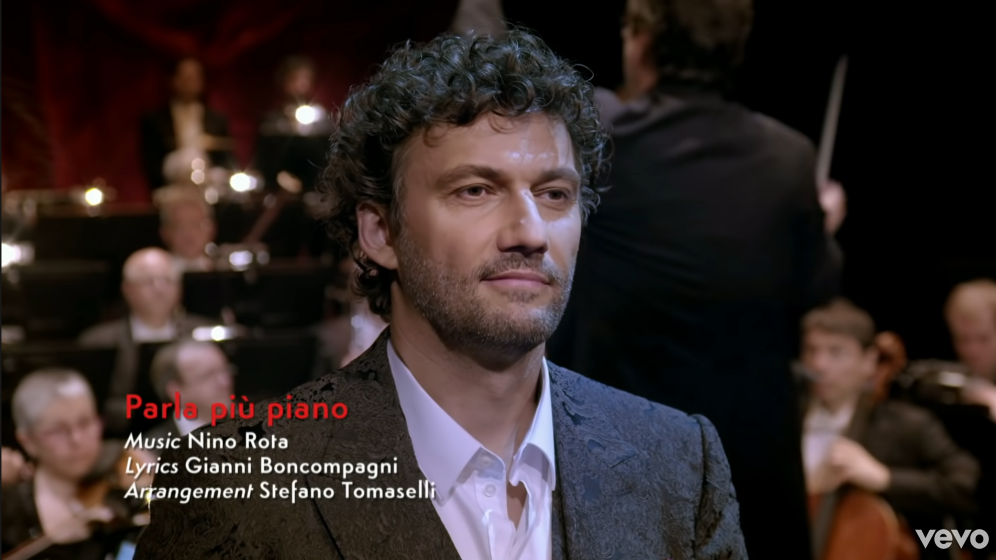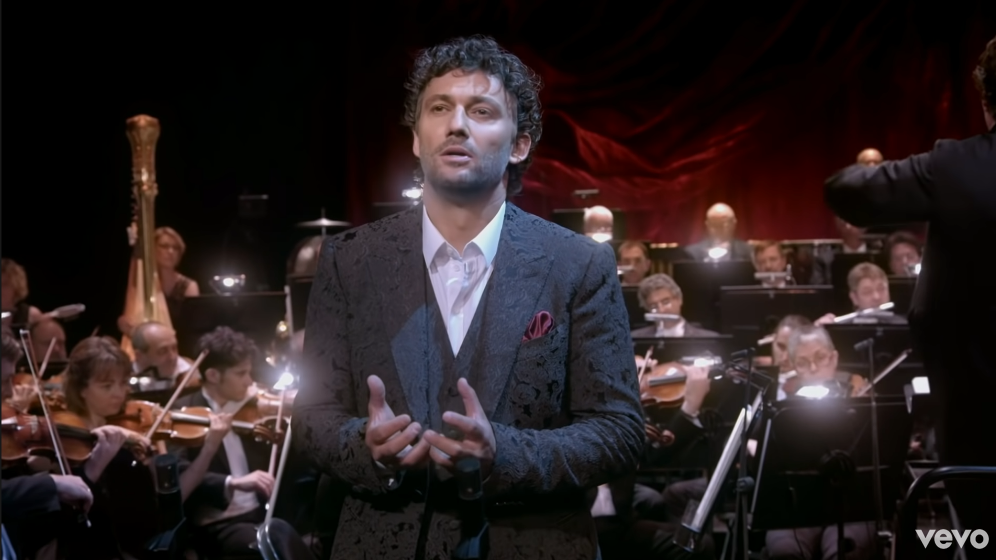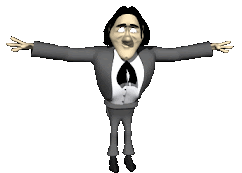

Il nostro amore lo viviamo io e te
Nessuno sa la verità
Neppure il cielo che ci guarda da lassù
Insieme a te io resterò
Amore mio, sempre così
Parla più piano e vieni più vicino a me
Voglio sentire gli occhi miei dentro di te
Nessuno sa la verità
È un grande amore e mai più grande esisterà
Insieme a te io resterò
Amore mio, sempre così
Parla più piano e vieni più vicino a me
Voglio sentire gli occhi miei dentro di te
Nessuno sa la verità...
È un grande amore e mai più grande esisterà...

.gif)
🎼
🎼
The first singer who sang in Italian perfectly without any foreign accent, thank you, sei bravissimo! 🇮🇹 💪🏼
The best rendition of Parla Piu Piano ever. One has to sing it from the heart and make it sound as if every word was your own. Soulful and deep!
🎼
Your voice and interpretation go straight to my heart. You are just out of this world. Outstanding performance!!!
His singing is a kind of dreaming . It’s a divine gift for this world in crisis. This enlighten sound makes us all desire to share a better world. Bless you Jonas !!! 🥰😍🌺
🎼
🎼
🎼
.gif)
- Get the Dolce Vita album here: https://SonyClassical.lnk.to/JK-Dolce...
- Get the DVD here: http://smarturl.it/jk-dolcevita-dvd
- More info: http://dolcevita.jonaskaufmann.com
.gif)
Coppola hired Italian composer Nino Rota to create the underscore for the film, including the main theme, "Speak Softly, Love".
In October 1971, Coppola flew to Rome with a copy of the film to give Rota to view and create the score accordingly. For the score, Rota was to relate to the situations and characters in the film. Scott Cain of The Atlanta Journal and Constitution reacted to Rota's work with the movie's score by saying that regardless of how the movie turned out, "it will be worthwhile just for Rota's contributions."
Rota synthesized new music for the film and took some parts from his 1958 Fortunella film score, in order to create an Italian feel and evoke the tragic film's themes. Rota also based the piece Main Theme (The Godfather Waltz) off the opening melody of Jean Sibelius' Symphony No. 1.
Paramount executive Evans found the score to be too "highbrow" and did not want to use it; however, it was used after Coppola managed to get Evans to agree. Coppola believed that Rota's musical piece gave the film even more of an Italian feel. Coppola's father, Carmine, created some additional music for the film, particularly the music played by the band during the opening wedding scene.
There are a total of nine instances within the film where incidental music can be heard, including C'è la luna mezzo mare and Cherubino's aria, Non so più cosa son from Le Nozze di Figaro. There was a soundtrack released for the film in 1972 in vinyl form by Paramount Records, on CD in 1991 by Geffen Records, and digitally by Geffen on August 18, 2005. The album contains over 31 minutes of music coming from the film, with most being composed by Rota, along with a song from Coppola and one by Johnny Farrow and Marty Symes. There were 29 recordings of Nino Rota's music on the market by April 1972, specifically the songs recorded were "The Godfather Waltz", "Speak Softly Love," and "Love Theme from The Godfather." It was expected more recordings would be hitting the market as the year went on.

👇 ♫ 📺 ♫ 👇
https://paulcpw.blogspot.com/2021/12/jonas-kaufmann-romantic-arias.html


.gif)
No comments:
Post a Comment